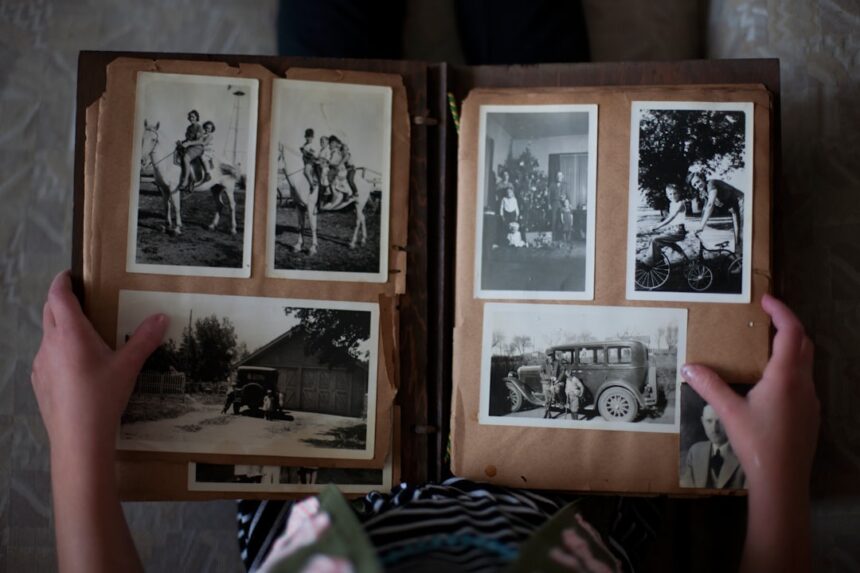Memory is a complex and multifaceted phenomenon that shapes your understanding of the world and your place within it. It is not merely a repository of past experiences; rather, it is an active process that involves encoding, storing, and retrieving information. When you think about memory, you might envision a vast library filled with books, each representing a different experience or piece of knowledge.
Memory is dynamic and can be influenced by various factors, including emotions, context, and even the passage of time. As you navigate through life, your memories are not static snapshots but rather fluid constructs that can change over time.
Each time you recall a memory, you may inadvertently alter it, adding new details or omitting others. This malleability is what makes memory both fascinating and sometimes unreliable. Understanding the nature of memory is crucial for recognizing how it shapes your identity and influences your decisions.
It is a fundamental aspect of human cognition that allows you to learn from past experiences while also presenting challenges in terms of accuracy and reliability.
Key Takeaways
- Memory is not a perfect recording of past events, but rather a reconstructive process influenced by various factors.
- Memories are formed through the encoding, storage, and retrieval of information, and can be influenced by the context in which they are experienced.
- Factors such as stress, age, and the presence of misleading information can impact the accuracy of memories.
- Suggestion can lead to the formation of false memories, especially when individuals are exposed to misleading information or leading questions.
- Emotions can both enhance and distort memory, influencing the encoding and retrieval of information.
How Memories are Formed
The formation of memories begins with the process of encoding, where sensory information is transformed into a format that can be stored in your brain. This process can occur through various means, such as visual imagery, auditory cues, or even emotional associations. When you experience something significant, your brain takes in the details and begins to organize them into a coherent narrative.
This initial encoding is influenced by your attention and focus; if you are distracted or uninterested, the likelihood of forming a strong memory diminishes. Once information is encoded, it moves into the storage phase, where it is maintained over time. This storage can be short-term or long-term, depending on the nature of the information and its relevance to you.
Long-term memories are often consolidated through repetition and emotional significance, making them more resilient against forgetting. As you reflect on your life experiences, you may find that certain memories stand out more vividly than others, often due to their emotional weight or the context in which they were formed. The interplay between encoding and storage is essential for understanding how you retain information and how those memories can evolve over time.
Factors Influencing Memory Accuracy

Memory accuracy is not solely determined by the strength of the original experience; it is also influenced by various external and internal factors. One significant factor is the context in which a memory is retrieved. When you recall an event in a similar environment to where it occurred, you are more likely to retrieve accurate details.
Conversely, if you attempt to remember something in a different context, your recollection may be distorted or incomplete. This phenomenon highlights the importance of environmental cues in shaping your memories. Another critical factor affecting memory accuracy is the passage of time.
As time goes by, your memories may fade or become less precise. You might find that certain details become blurred or that you begin to confuse events with similar characteristics. Additionally, your beliefs and expectations can shape how you remember past events.
If you hold a particular viewpoint about a situation, it may color your recollection of it, leading to biases that affect accuracy.
The Role of Suggestion in False Memories
| Study | Participants | Findings |
|---|---|---|
| Loftus and Palmer (1974) | 45 students | Leading questions influenced participants’ speed estimates of a car crash |
| Wade et al. (2002) | Participants from a community sample | False memories were created through suggestive interviewing techniques |
| Shaw and Porter (2015) | Undergraduate students | Participants were more likely to report false memories when exposed to suggestive information |
Suggestion plays a pivotal role in the creation of false memories, often leading you to believe in events that never actually occurred. This phenomenon can happen through various means, such as leading questions or exposure to misleading information. For instance, if someone asks you about an event using suggestive language or implies certain details, you may unconsciously incorporate those suggestions into your memory.
This process demonstrates how easily your recollections can be manipulated by external influences. The power of suggestion is particularly evident in situations where individuals are exposed to misinformation after an event has taken place. When you encounter conflicting information about an experience you’ve had, your brain may struggle to reconcile these discrepancies, leading to confusion and potential alterations in your memory.
This susceptibility to suggestion underscores the importance of critical thinking and skepticism when evaluating your own memories or those of others. Being aware of how suggestion can shape your recollections can empower you to approach memories with a more discerning mindset.
The Impact of Emotion on Memory
Emotion plays a crucial role in shaping your memories, often enhancing their vividness and retention. When you experience strong emotions—whether joy, fear, sadness, or excitement—your brain releases neurotransmitters that help solidify those memories in your mind. This emotional arousal acts as a signal for your brain to prioritize certain experiences over others, ensuring that significant moments are more easily recalled later on.
You may find that emotionally charged events stand out in your memory compared to mundane occurrences. However, while emotion can enhance memory retention, it can also lead to distortions. Intense emotions may cause you to focus on specific aspects of an event while neglecting others, resulting in a skewed recollection.
For example, if you experienced a traumatic event, the emotional weight attached to it might overshadow other details that could provide a more balanced perspective. Understanding the dual role of emotion in memory—both as an enhancer and a potential distorting force—can help you navigate your recollections with greater awareness.
The Influence of Misinformation on Memory

Misinformation can significantly impact your memories by introducing inaccuracies that alter how you perceive past events. This phenomenon often occurs when individuals are exposed to incorrect information after an event has taken place. For instance, if you read an article or hear someone discuss an event with inaccuracies, those details may inadvertently become integrated into your own memory of the experience.
This blending of fact and fiction can lead to confusion and uncertainty about what actually happened. The influence of misinformation highlights the fragility of memory and its susceptibility to external factors. You might find yourself questioning the accuracy of your recollections after encountering conflicting information from various sources.
This uncertainty can be particularly troubling when it comes to significant life events or important decisions based on those memories. Being aware of how misinformation can infiltrate your memory can encourage you to approach recollections with caution and seek corroborating evidence when necessary.
False Memories in Legal Contexts
The phenomenon of false memories has profound implications in legal contexts, where eyewitness testimony can significantly influence the outcomes of trials. When individuals are called upon to recall events they witnessed, their memories may be subject to distortion due to various factors such as stress, suggestion, or misinformation. As a result, juries may base their decisions on flawed recollections that do not accurately reflect what transpired.
In legal settings, the reliability of eyewitness testimony has been called into question due to research demonstrating how easily memories can be manipulated or altered. You may find it unsettling to consider that what seems like a clear recollection could be influenced by external factors beyond your control. This understanding emphasizes the need for caution when relying on eyewitness accounts as definitive evidence in legal proceedings.
Memory Distortion in Witness Testimony
Witness testimony is often viewed as a cornerstone of legal proceedings; however, memory distortion can undermine its reliability. When witnesses recount their experiences, they may inadvertently introduce inaccuracies due to stress or pressure during questioning. The way questions are framed can also lead witnesses to recall details differently than they actually occurred.
For example, leading questions may prompt witnesses to fill in gaps with fabricated details that align with the suggestions provided. Moreover, the social dynamics at play during legal proceedings can further complicate witness testimony. You might feel compelled to conform to group opinions or expectations when discussing an event with others who have different recollections.
This social pressure can lead to collective memory distortions where individuals unknowingly adopt false memories shared by others. Recognizing these dynamics is essential for understanding how memory distortion can impact witness testimony and ultimately affect justice.
Techniques for Detecting False Memories
Detecting false memories poses significant challenges due to their often indistinguishable nature from genuine recollections. However, researchers have developed various techniques aimed at identifying discrepancies between actual events and recalled memories. One common method involves cognitive interviews that encourage witnesses to recount their experiences in detail without leading questions or suggestions.
By allowing individuals to freely express their memories without constraints, investigators can gain insights into potential inaccuracies. Another technique involves comparing multiple accounts from different witnesses or sources to identify inconsistencies that may indicate false memories. By analyzing patterns across testimonies, investigators can discern which details align with corroborating evidence and which may be products of suggestion or distortion.
While these techniques are not foolproof, they represent valuable tools for assessing the reliability of memories in various contexts.
Strategies for Minimizing False Memories
To minimize the risk of false memories, several strategies can be employed both individually and collectively. One effective approach involves fostering an environment that encourages open dialogue about experiences without leading questions or assumptions. By creating spaces where individuals feel comfortable sharing their recollections without fear of judgment or correction, you can reduce the likelihood of introducing inaccuracies into shared memories.
Additionally, being mindful of the language used when discussing past events is crucial for minimizing false memories. Avoiding suggestive phrasing and focusing on objective descriptions can help maintain clarity and accuracy in recollections. Furthermore, engaging in regular reflection on personal experiences—such as journaling—can aid in solidifying genuine memories while providing a reference point for future recollection.
Implications for Therapy and Counseling
The understanding of memory’s complexities has significant implications for therapy and counseling practices. As mental health professionals work with clients who may have experienced trauma or distressing events, recognizing the potential for false memories becomes essential for effective treatment. Therapists must approach clients’ recollections with sensitivity while also encouraging critical reflection on their experiences.
In therapeutic settings, fostering an environment where clients feel safe discussing their memories without fear of invalidation is crucial for building trust and rapport. By acknowledging the malleability of memory while validating clients’ feelings and experiences, therapists can help individuals navigate their pasts more effectively. Ultimately, understanding the intricacies of memory allows mental health professionals to provide more informed care while empowering clients to explore their narratives with greater clarity and resilience.
In conclusion, memory is a complex interplay of processes influenced by various factors ranging from emotion to suggestion and misinformation. By understanding these dynamics, you can navigate your own recollections with greater awareness while also recognizing the implications for legal contexts and therapeutic practices.
In exploring the fascinating realm of human memory, it’s intriguing to consider how our recollections might not be as reliable as we believe. The article “Why Your Memories Are Fake” delves into the complexities of memory formation and the psychological factors that can lead to distorted or entirely false memories. This phenomenon is further examined in a related article on the Unplugged Psychology website, which discusses the intricacies of memory and perception. For a deeper understanding of how our minds can deceive us, you can read more about these psychological insights by visiting this article.
WATCH THIS! The Shocking Truth About Perception Loops
FAQs
What are false memories?
False memories are recollections of events that never actually happened or are distorted versions of real events. These memories can feel just as real and vivid as true memories.
How do false memories form?
False memories can form through a variety of ways, including suggestion, misinformation, imagination, and the blending of real and imagined events. They can also be influenced by social and cultural factors.
Why are our memories sometimes inaccurate?
Our memories can be inaccurate due to the fallibility of human memory. Our brains are not perfect recording devices and are susceptible to errors, biases, and distortions.
Can false memories be implanted?
Yes, false memories can be implanted through suggestion, leading questions, and exposure to misinformation. This can occur in therapeutic settings, through leading interviews, or through exposure to misleading information.
What are the implications of false memories?
False memories can have significant implications, particularly in legal and therapeutic contexts. They can lead to wrongful convictions, false accusations, and the creation of traumatic memories that never actually occurred.
How can we distinguish between true and false memories?
Distinguishing between true and false memories can be challenging, as false memories can feel just as real as true memories. However, corroborating evidence, consistency with other memories, and critical thinking can help in evaluating the accuracy of memories.




